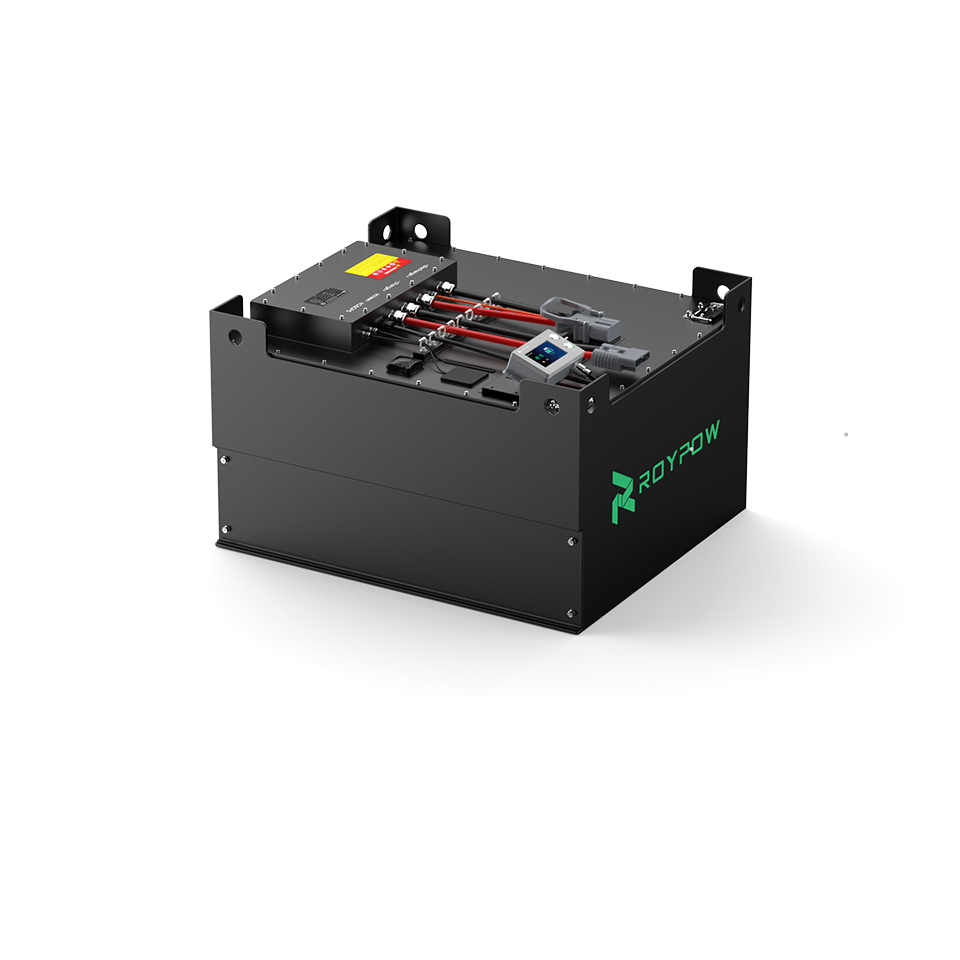-

80V 690Ah Lithium Forklift Battery
80V 690Ah Lithium Forklift Battery
F80690K
-

80V 690Ah Air-Cooled LiFePO4 Forklift Battery
80V 690Ah Air-Cooled LiFePO4 Forklift Battery
-

80V 400Ah Lithium Forklift Battery
80V 400Ah Lithium Forklift Battery
F80400D
-

80V 460Ah Lithium Forklift Battery
80V 460Ah Lithium Forklift Battery
F80460Q
-

80V 460Ah Lithium Forklift Battery
80V 460Ah Lithium Forklift Battery
F80460H-A
-

80V 560Ah Lithium Forklift Battery
80V 560Ah Lithium Forklift Battery
F80560G
-

80V 690Ah Lithium Forklift Battery
80V 690Ah Lithium Forklift Battery
F80690G
-

80V 420Ah Lithium Forklift Battery
80V 420Ah Lithium Forklift Battery
F80420A
-
1. How Long Do 80V Forklift Batteries Last? Factors That Affect Battery Life
+ROYPOW 80V forklift batteries support up to 10 years of design life and over 3,500 times of cycle life.
The lifespan depends on factors like usage, maintenance, and charging practices. Heavy use, deep discharges, and improper charging can shorten its lifespan. Regular maintenance helps extend battery life. Additionally, charging the battery properly and avoiding overcharging or deep discharging can maximize its longevity. Environmental factors, like temperature extremes, also affect battery performance and lifespan.
-
2. 2.Lithium-Ion vs. Lead-Acid: Which 80V Forklift Battery is Best for Your Warehouse?
+For an 80V forklift battery, lithium-ion batteries offer a longer lifespan (7-10 years), faster charging, and require little maintenance, making them ideal for high-demand environments. While more expensive upfront, they provide long-term savings. Lead-acid batteries are cheaper but require regular maintenance, have a shorter lifespan (3-5 years), and take longer to charge. They are better for less intensive, budget-conscious operations. Choose lithium-ion for efficiency and low maintenance, and lead-acid batteries for cost savings in light-duty use.
-
3. Essential Maintenance Tips for Your 80V Forklift Battery: Maximize Performance
+To maintain your 80V forklift battery, avoid overcharging or deep discharging, and keep it within the recommended temperature range. Use a compatible charger and ensure it’s fully charged before long-term storage. Inspect the battery regularly for wear, keep the terminals clean, and store it in a cool, dry place. These practices will help maximize performance and lifespan.
-
4. How to Upgrade to an 80V lithium Forklift Battery: What You Need to Know?
+Upgrading to an 80V lithium forklift battery involves a few key steps. First, ensure your forklift is compatible with an 80V battery by checking the voltage requirements. Then, choose a lithium-ion battery with the appropriate capacity (Ah) for your operations. You’ll need to replace the existing charger with one designed for lithium-ion batteries, as they require different charging protocols. Installation may require professional assistance to ensure proper wiring and safe operation. Finally, train your operators on the new battery’s charging and maintenance procedures.









